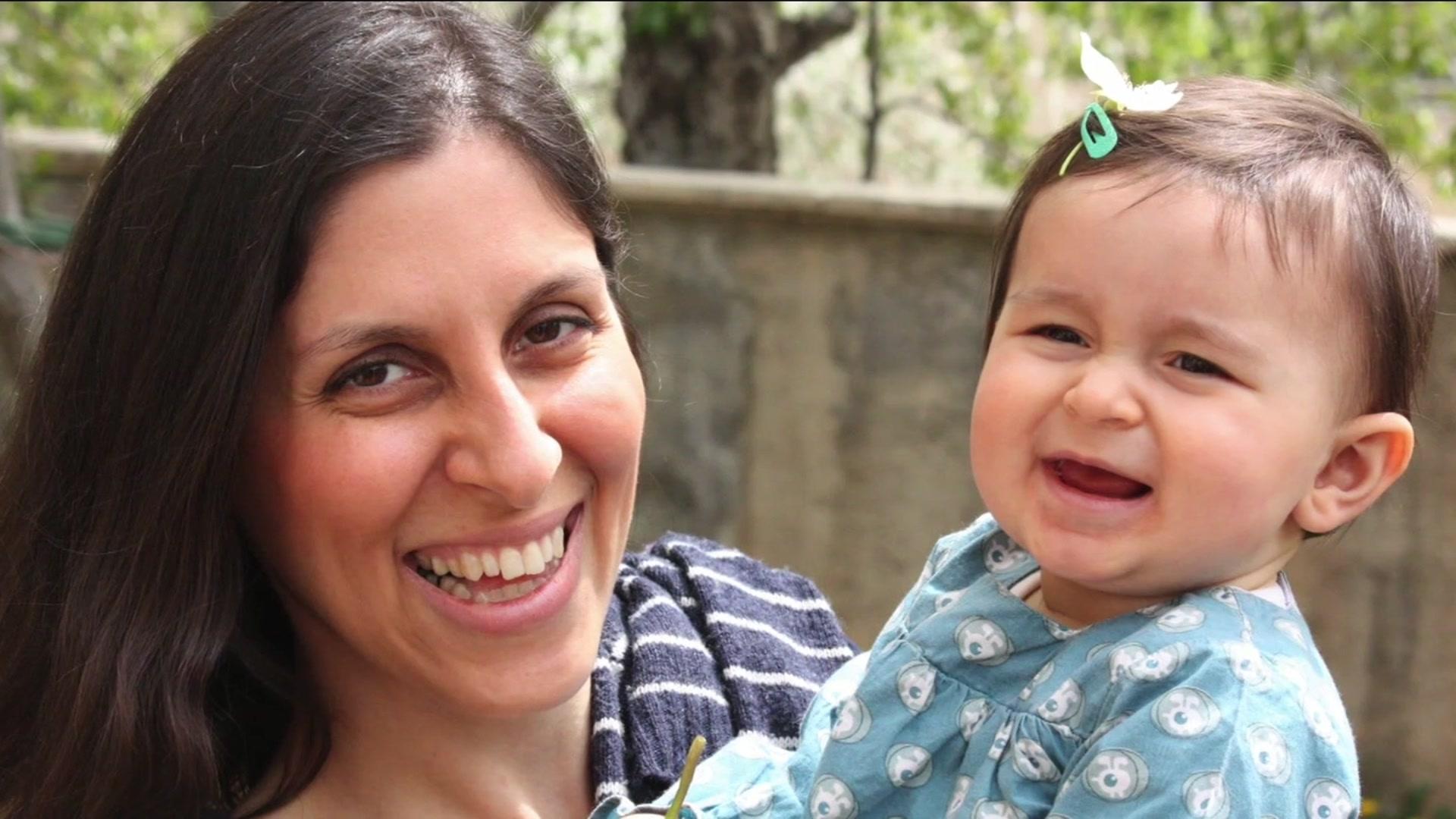Boris Johnson sorry if Zaghari-Ratcliffe remarks 'caused anxiety'
- Published
Nazanin Zaghari-Ratcliffe's husband said "she was just a mum on holiday"
Boris Johnson has said he is sorry if his remarks about a British-Iranian mother caused anxiety to her family.
The foreign secretary had been criticised for saying Nazanin Zaghari-Ratcliffe, who has been jailed in Iran, had been training journalists there.
A charity said the remarks could worsen her sentence. She had been in Iran on holiday when she was arrested, it said.
Mr Johnson told MPs he was sorry if his words were "so taken out of context" as "to cause any kind of anxiety".
The UK government had "no doubt" she was on holiday when she was arrested, he said.
Mr Johnson called the Iranian foreign minister, Javad Zarif, about Mrs Zaghari-Ratcliffe's case
Mrs Zaghari-Ratcliffe was detained at Tehran Airport in April 2016 and is serving a five-year sentence for allegedly plotting to topple the government in Tehran, although the official charges have never been made public.
She has worked for the Thomson Reuters Foundation and BBC Media Action (the corporation's international development charity), but has always said the 2016 visit was so her daughter Gabriella, who is three, could meet her grandparents.
She was summoned back to court on 4 November, where Mr Johnson's comment was cited as new evidence as to what she was doing in Iran.
Mr Johnson had told the Commons Foreign Affairs Select Committee on 1 November: "When I look at what Nazanin Zaghari-Ratcliffe was doing, she was simply teaching people journalism, as I understand it.
"[Neither] Nazanin Zaghari-Ratcliffe nor her family has been informed about what crime she has actually committed. And that I find extraordinary, incredible."
Her husband, Richard Ratcliffe, said Mr Johnson had done a "good thing" in clarifying his comments, and asked him to try to visit his wife in Iran.
"It's important that the judiciary understands that the British government thinks she is innocent," he said.
He said he hoped his wife and daughter, a British citizen - who is with her grandparents in Iran - can return home before Christmas.
Monique Villa, chief executive of the Thomson Reuters Foundation, said she saw a "direct correlation" between Mr Johnson's original remarks and Mrs Zaghari-Ratcliffe's treatment in Iran.
She said Mrs Zaghari-Ratcliffe had "never trained journalists" at the charity.
Boris Johnson is asked if he will apologise to Nazanin Zaghari-Ratcliffe's family
Mr Johnson told MPs his previous remarks to the foreign affairs committee "could have been clearer".
He said: "My point was that I disagreed with the Iranian view that training journalists was a crime - not that I wanted to lend any credence to Iranian allegations that Mrs Zaghari-Ratcliffe has been engaged in such activity.
"I accept that my remarks could have been clearer in that respect, and I'm glad to provide this clarification."
Later, when MP Layla Moran asked him if he would apologise to Mrs Zaghari-Ratcliffe's family, he said: "Of course I am sorry if any words of mine have been so taken out of context and so misconstrued as to cause any kind of anxiety for the family."
He said he did not believe his comments had "had any impact on the judicial process" in Iran.

Johnson's job is safe
By Ben Wright, BBC political correspondent:
Boris Johnson is in hot water again. It will not, however, result in his dismissal from the cabinet.
In an effort to hose the situation down and minimise any damage to Mrs Zaghari-Ratcliffe's case, the foreign secretary told his Iranian counterpart that he accepted his remarks at the committee "could have been clearer".
He said he was seeking to condemn "the Iranian view that training journalists was a crime."
But that is not what he said to the Commons committee last week - and Labour MPs are furious at this latest diplomatic fumble by the Foreign Secretary.
The foreign secretary said his comments had no impact on the case in Iran, a view echoed by his Iranian counterpart.
That certainly helps Mr Johnson weather this latest storm.
But more fundamentally, Theresa May does not have the political strength to dismiss one of the Cabinet's big Brexit-supporting beasts.

Mr Ratcliffe maintains his wife is innocent
Mr Johnson had earlier called the Iranian foreign minister, Javad Zarif, to say his remarks provided "no justifiable basis" for further legal action and that he intended to visit Iran before the end of the year to discuss the case.
Mr Zarif told the foreign secretary the developments in the case over the weekend were "unrelated" to Mr Johnson's remarks, a Foreign Office statement added.
The Iranian judiciary's High Council for Human Rights said Mr Johnson's comments "shed new light" on the charity worker and proved Mrs Zaghari-Ratcliffe "had visited the country for anything but a holiday".
Mrs Zaghari-Ratcliffe denies all the allegations against her, but lost her final appeal in April.
She has since faced two more charges relating to an accusation of plotting to topple the government in Tehran.
Mrs Zaghari-Ratcliffe had been eligible for parole under the early release scheme from 23 November.
Mr Ratcliffe told the Press Association that his wife could now face a fresh trial before that date to block her chance of freedom.
"I think the one thing the foreign secretary could do to make amends would be if he went to visit her in the next few weeks before her trial," he said.

Mother caught in Iran power struggle

Nazanin Zaghari-Ratcliffe says she was in Iran so her daughter could meet her grandparents
By Rana Rahimpour, BBC Persian Service:
The case of Nazanin Zaghari-Ratcliffe is first and foremost a story of terrible personal suffering for a young woman, her husband and their baby girl.
Eighteen months into a five-year sentence, Ms Zaghari-Ratcliffe faces the prospect of up to 16 years in an Iranian jail.
It is also, however, a story of an internal power struggle in Iran, as well as of the nation's deeply difficult relationship with the UK.

- Published6 November 2017
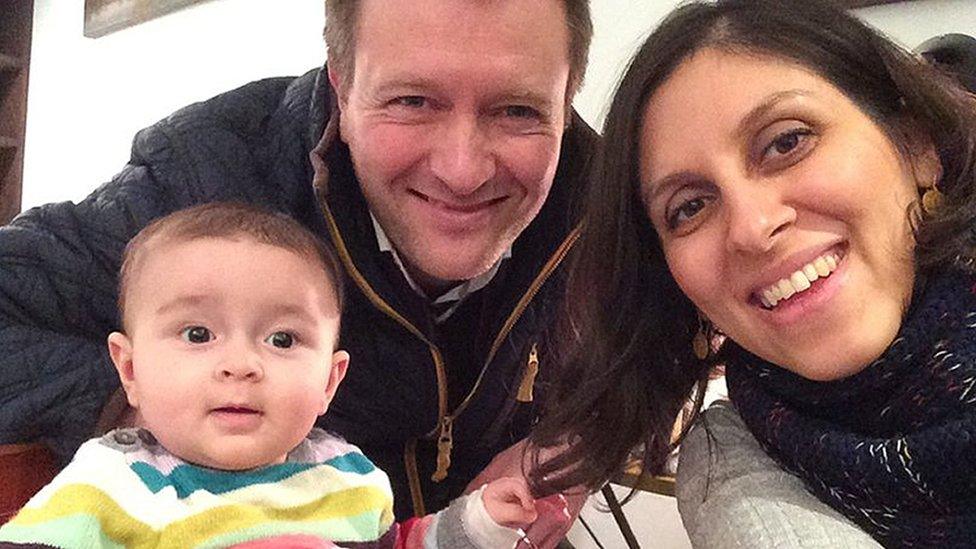
- Published7 November 2017
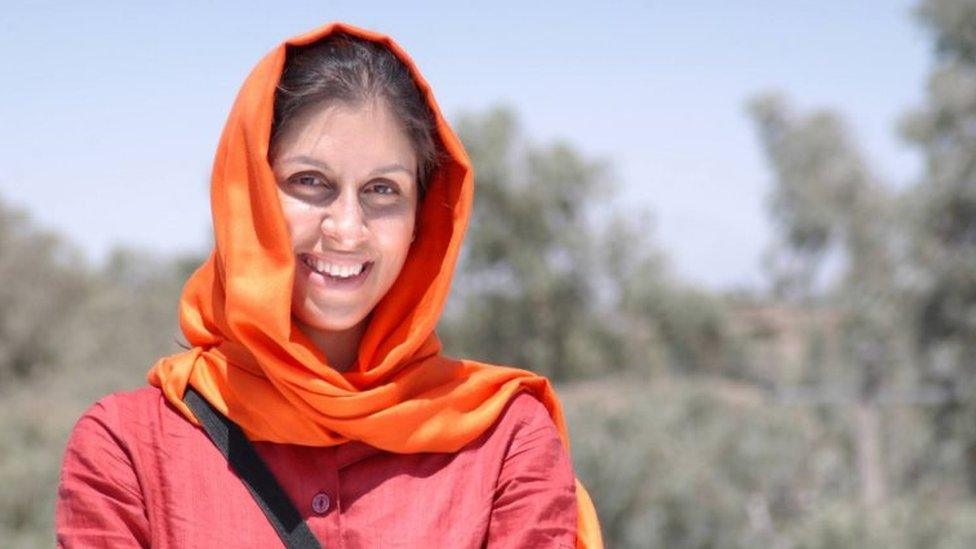
- Published9 October 2017
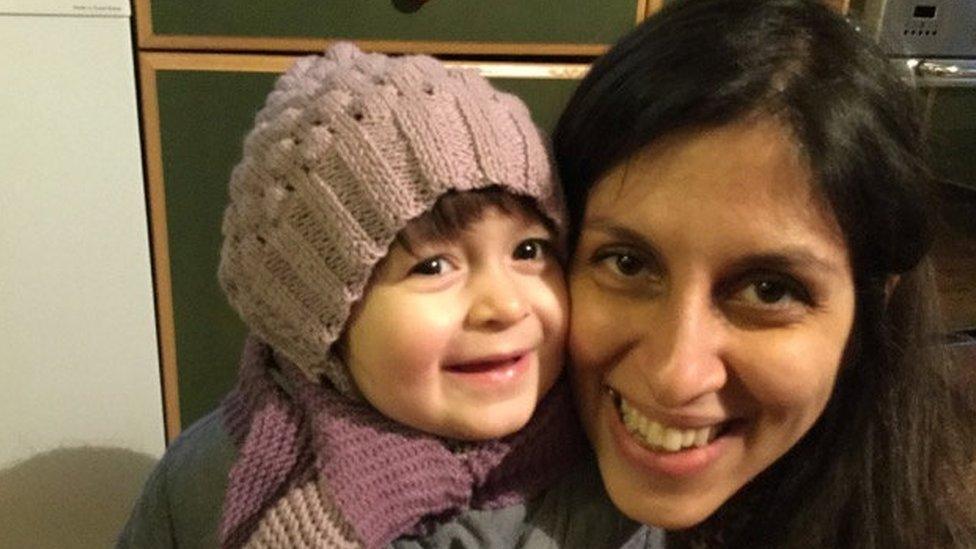
- Published10 September 2016
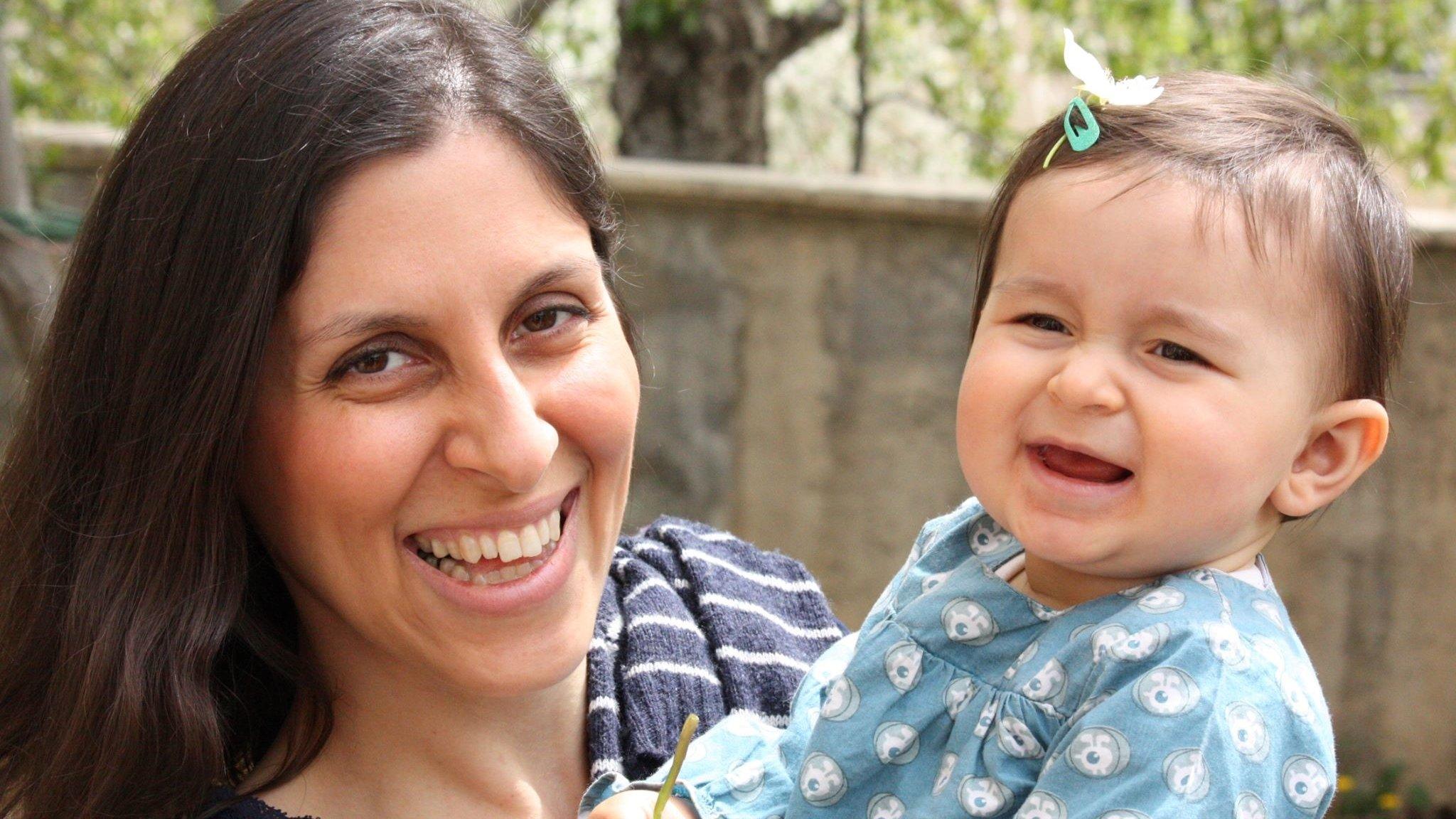
- Published24 April 2017

- Published14 August 2016
